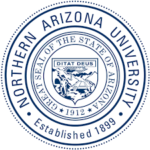STUDY IN US
Studying in the United States is a popular choice for many international students due to the country's diverse range of universities, high academic standards, and vibrant campus life.
- Quality Education
- Diverse Programs
- Cultural Diversity
Top List Programs
List of Universities & Programs In US

Why Study In US?
Studying in the United States offers unparalleled opportunities for academic and personal growth, making it a top destination for international students. The US is home to many of the world’s leading universities, renowned for their rigorous academic standards and innovative teaching methods. Students benefit from a diverse range of programs, allowing for flexibility and personalized educational paths. The multicultural environment fosters a rich exchange of ideas and perspectives, enhancing the learning experience.
- High-Quality Education
- Innovative Teaching Methods
- Quality of Life
Study in US in 5 Steps
Follow the steps below to start your US education journey.
Choose Your Study Area
Find a course that aligns with your career or learning goals.
Choose Your Course
Use our course search tool to find and compare courses.
Plan Your Budget
Estimate your study and living expenses.
Prepare Your Student Visa Application
For full-time courses longer than three months, you’ll need a student visa.
Get Ready to Study
Once you've accepted your offer and secured your visa, plan your move.
Frequently asked questions
FAQs
We understand that navigating the visa process can be daunting, which is why we've compiled a list of frequently asked questions to address your concerns:
Why should I study in the US?
- High-Quality Education: The US is home to many top-ranked universities known for their rigorous academic standards and innovative teaching methods.
- Diverse Programs: A wide range of programs and the flexibility to tailor your education to your interests.
- Research Opportunities: Access to cutting-edge research facilities and funding.
What are the admission requirements?
- Academic Transcripts: High school or previous university records.
- Standardized Tests: TOEFL/IELTS for English proficiency, SAT/ACT for undergraduates, GRE/GMAT for graduates.
- Letters of Recommendation: Typically from teachers or professors.
How do I apply to US universities?
- Research: Shortlist universities that match your goals.
- Prepare Documents: Gather transcripts, test scores, recommendation letters, and other required materials.
What financial aid options are available?
- Scholarships and Grants: Offered by universities, government programs, and private organizations.
- Assistantships: Teaching or research assistant positions that provide financial support.














